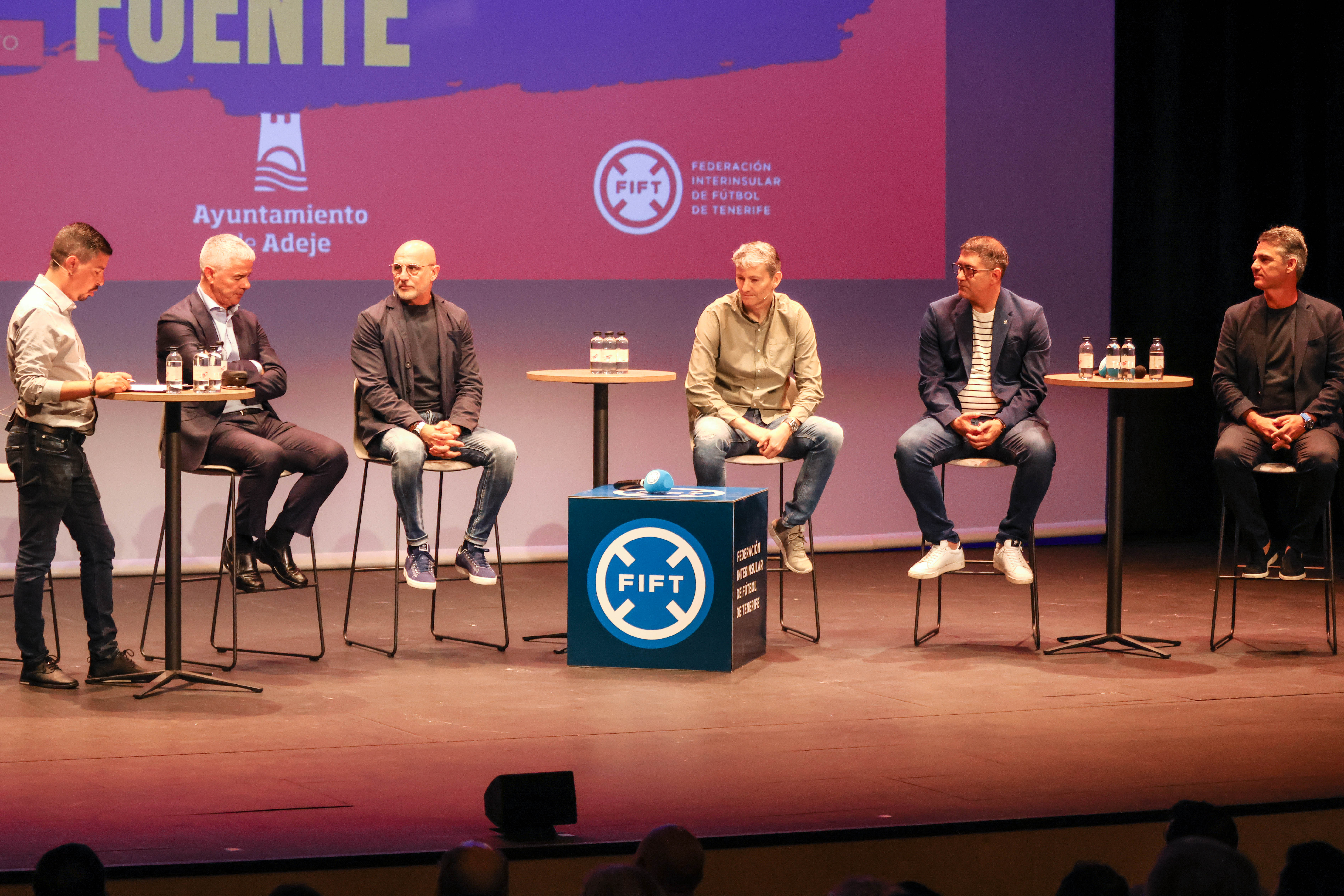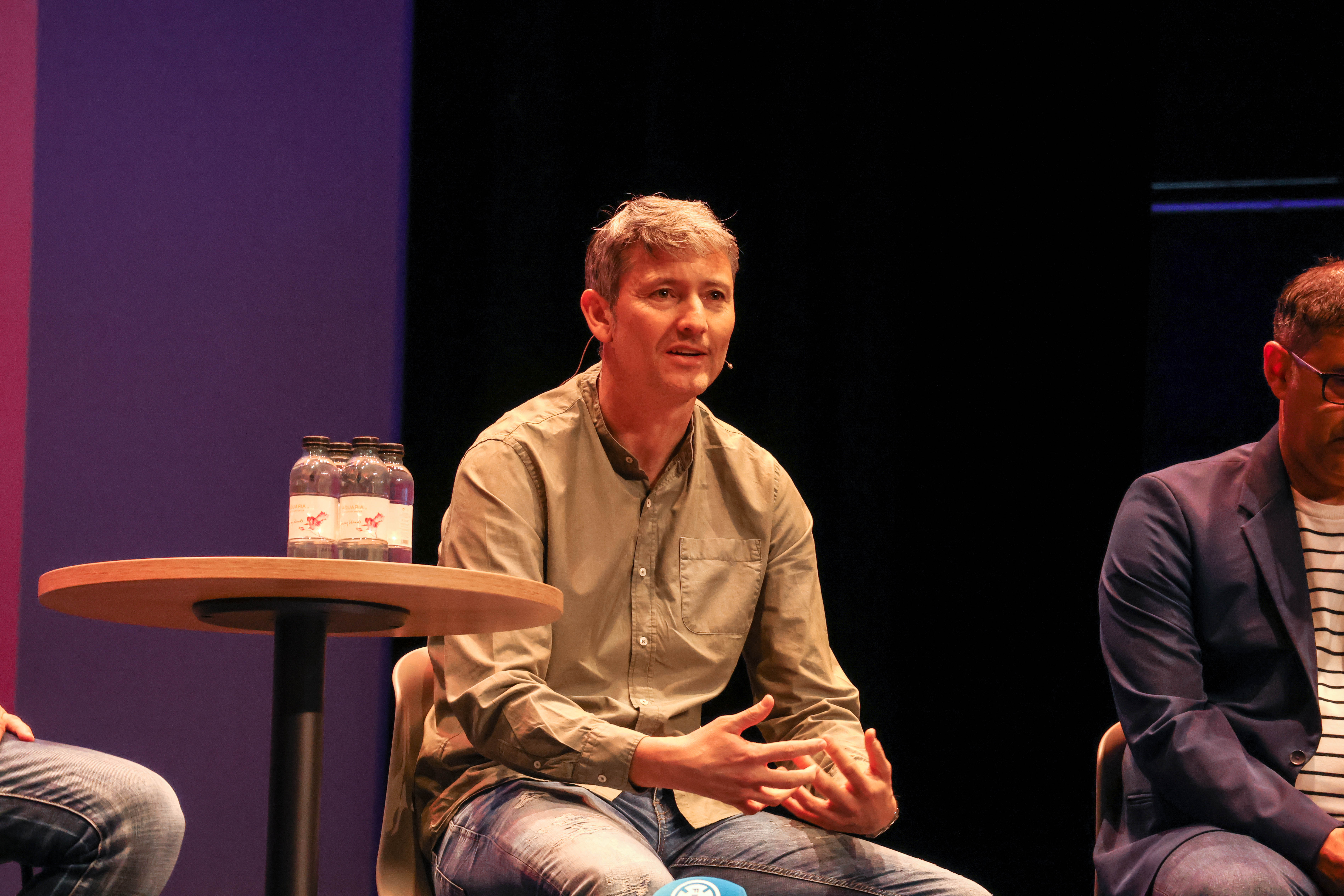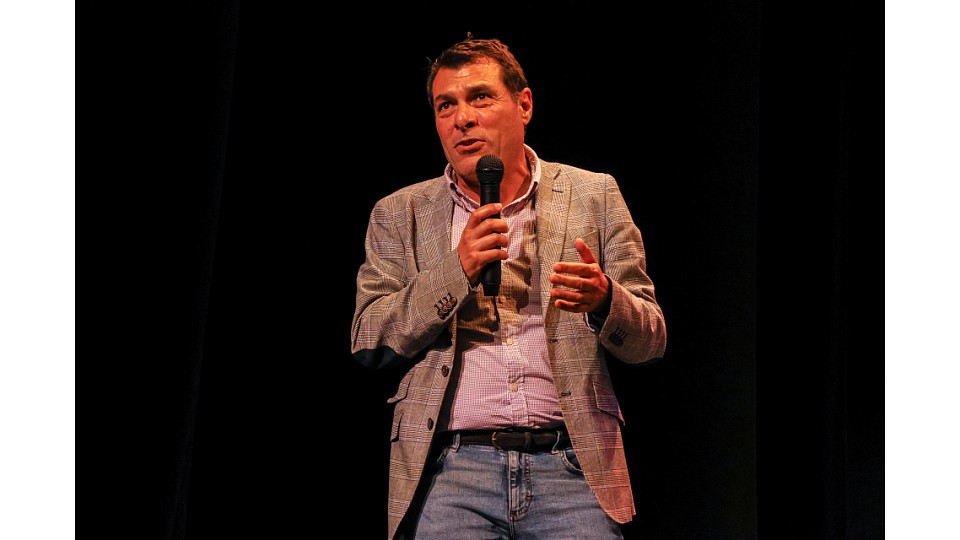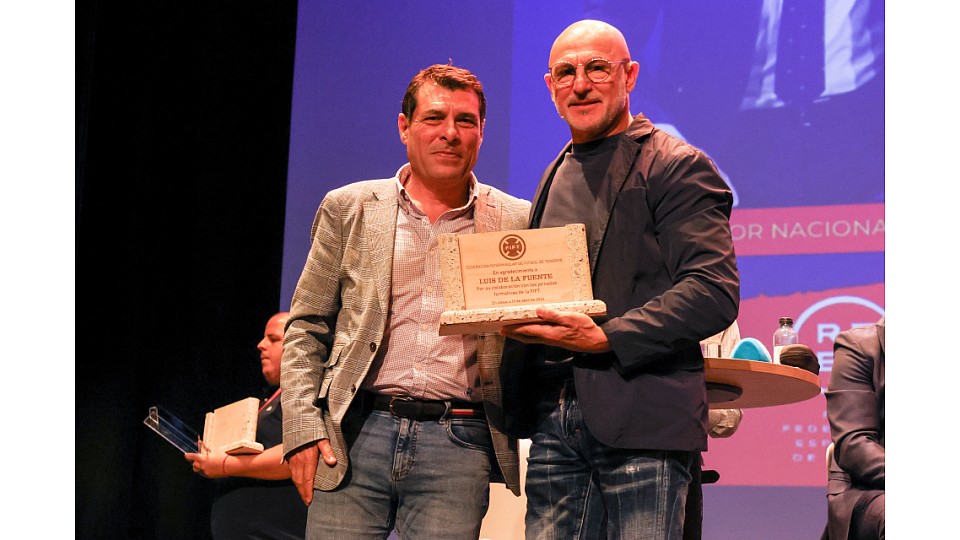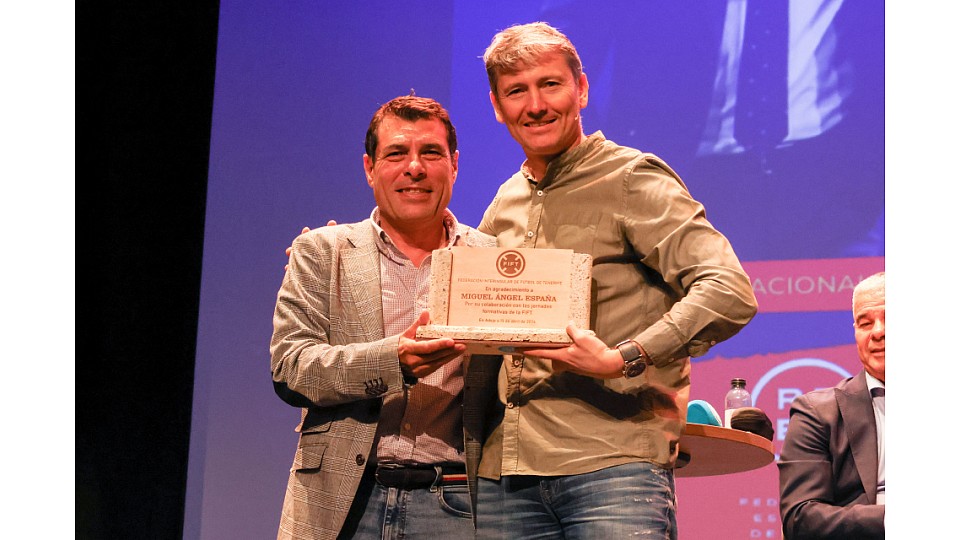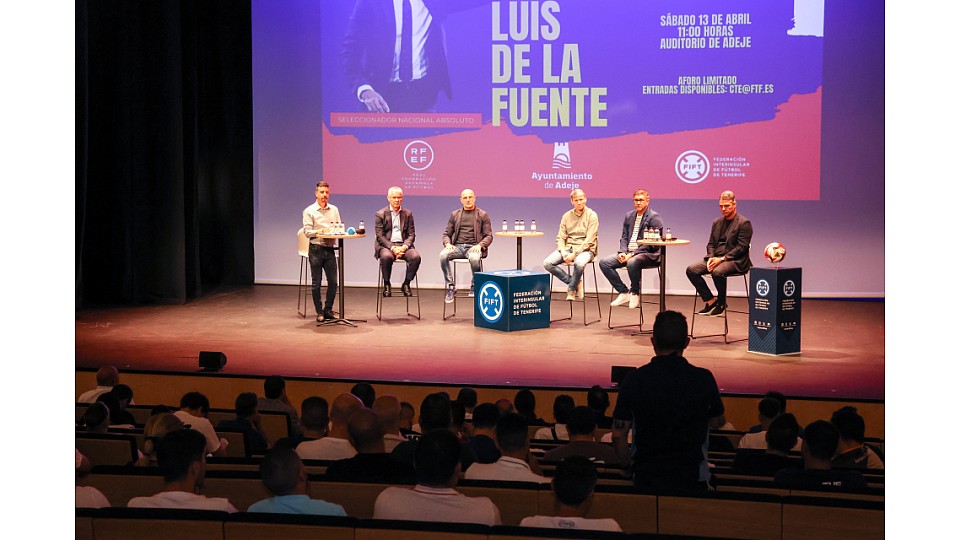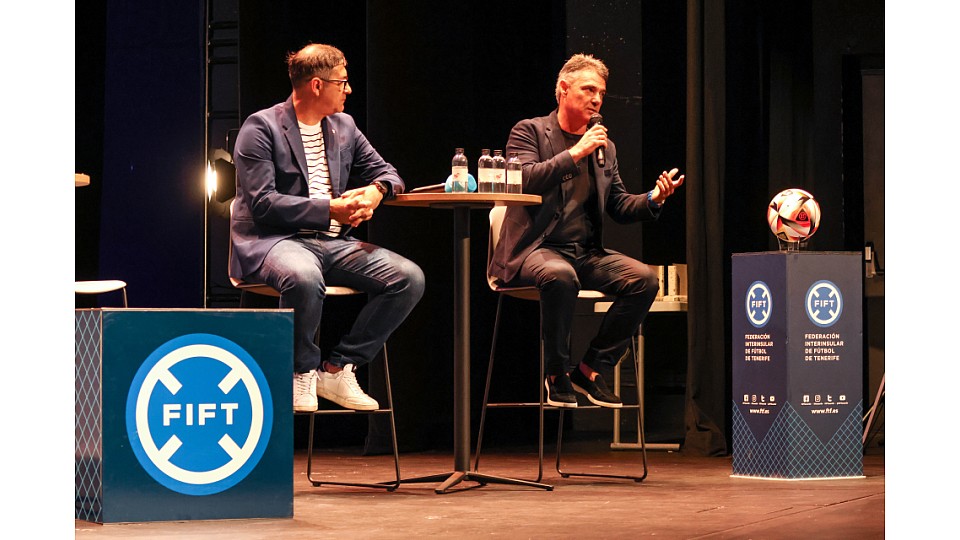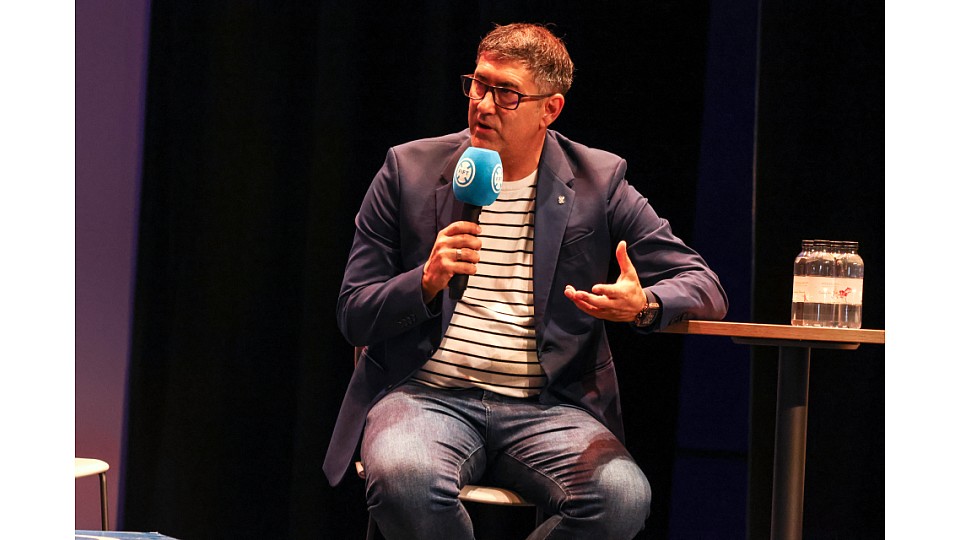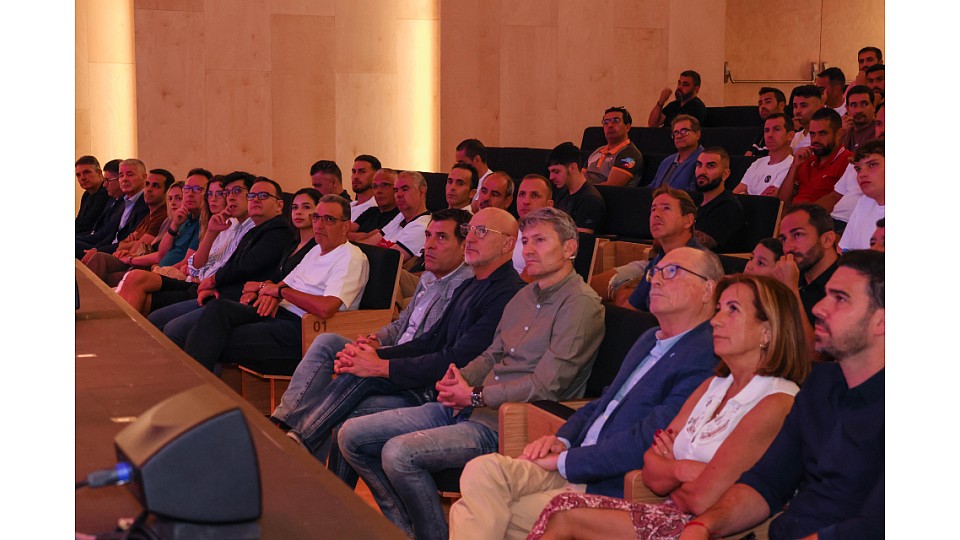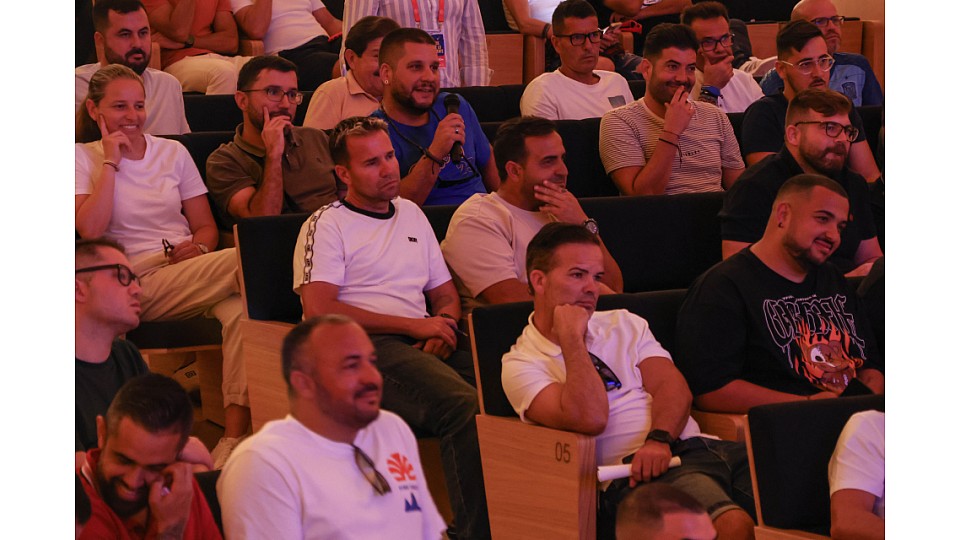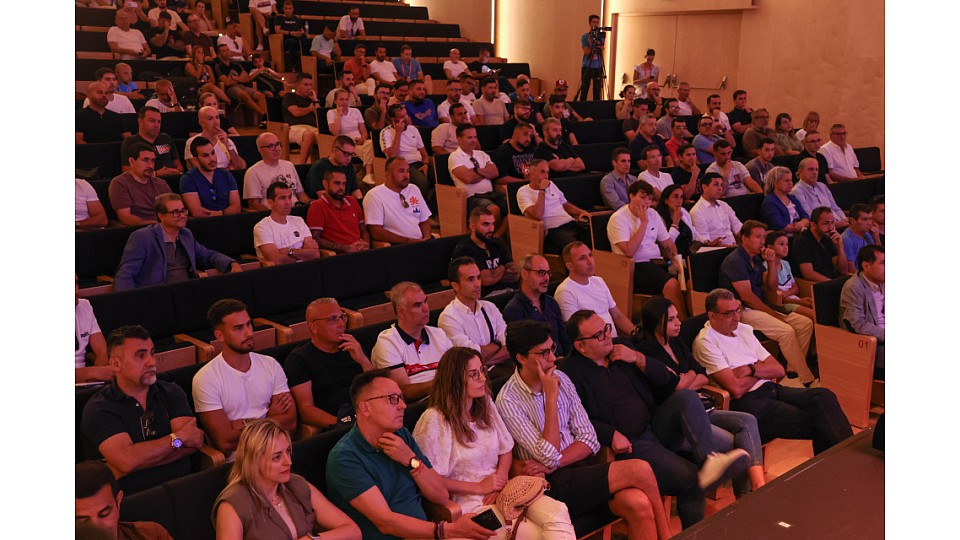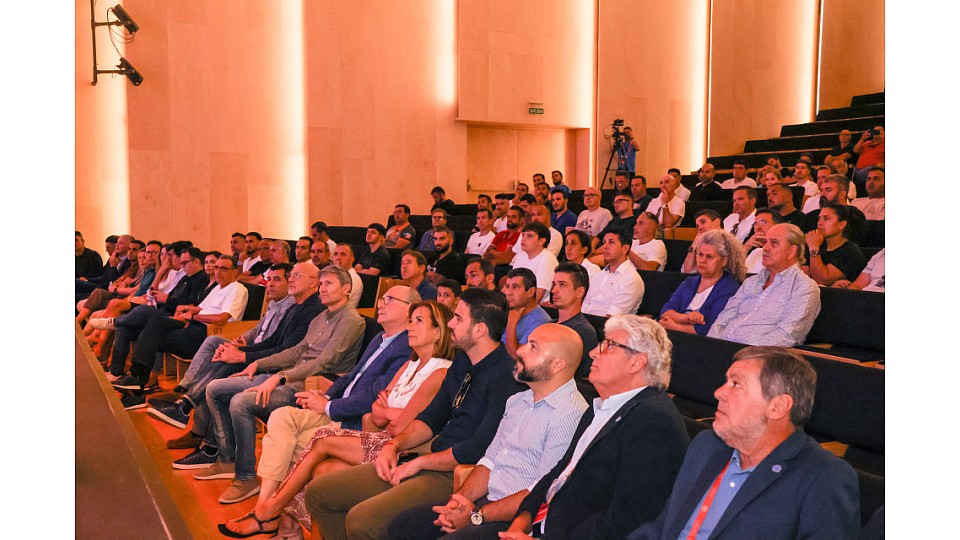Luis de la Fuente: "In the National Team we try to create an environment where everyone feels important"
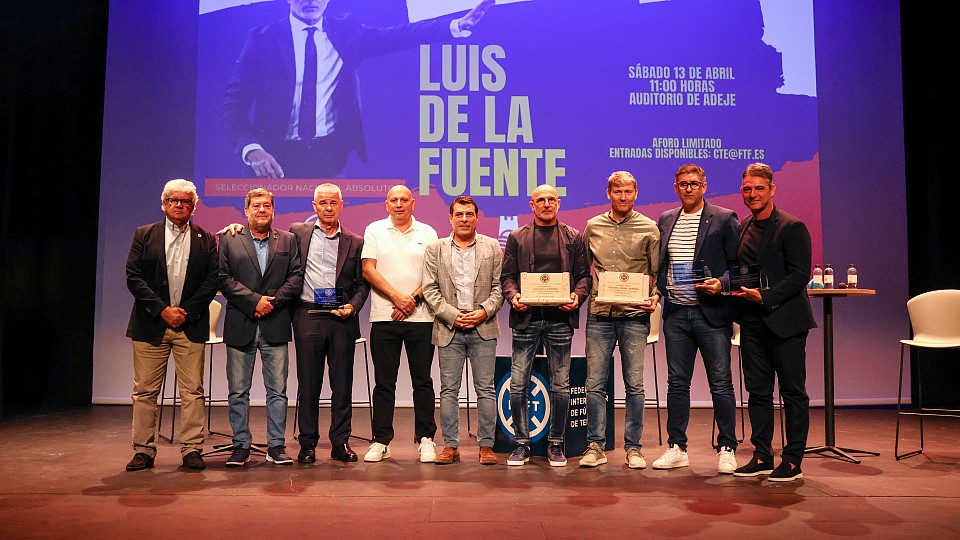
The national coach participates in a training day organised by the Federación Interinsular de Fútbol de Tenerife, along with Miguel Ángel España, David Amaral, Mauro Pérez and Luisma Hernández.
The national coach Luis de la Fuente, accompanied by Miguel Ángel España, the National Team goalkeeping coach, participated in a training day organised by the Comité Técnico de Entrenadores y la Escuela de Entrenadores de la Federación Interinsular de Fútbol de Tenerife, together with David Amaral (professional football coach), Mauro Pérez (sporting director of CD Tenerife) and Luisma Hernández (coach of the FC Barcelona School in Tenerife).
In front of an 'Auditorio de Adeje' full of coaches, very interesting aspects were discussed. Both in terms of content coaches who design training sessions and for those who work in physical high performance, showing the importance of these training sessions for the continuous evolution of coaches. Also in attendance were Alejandro Morales Mansito, president of FIFT; Luis Figueroa, president of the FIFT Coaches Committee; and José Domingo Reverón, director of the FIFT Technical School for Football Coaches.
You have to keep learning no matter how much experience you have, no one is closed to learning, we are always willing to learn, I think I have evolved for the better and that has allowed me to be where I am," said the national team coach, who since landing at the RFEF in 2013 has experienced all sorts of stages of football development and and been all conquering until reaching the senior team, with whom he conquered the recent edition of the UEFA Nations League. "In addition to being coaches, I believe that there is another area that we must take care of, which is that of being a trainer of people. I want to coach good footballers, but above all good people who help you become a better professional," said De la Fuente, before adding that families play an important role in the formative stages and "help the coach. It would be a drama if the worst advice given to a boy or girl came from his or her own family out of ignorance or other interests, that would be a drama".
In his relations with his players and people, there is one word that prevails over the rest when it comes to summarising his approach: 'RESPECT'. "In the framework of respect, the player will meet me, if there is no respect, then no. This is transferable to the fans, journalists and other people. This applies to the fans, journalists and other people. From the point of view of respect everything is much closer, it does not mean that we all agree, sometimes we have had disagreements, but when we see each other we give each other a hug because we are two people who look each other in the eyes. Respect is the key word," added the coach.
Fortunate to be able to select from the best players "in the world", Luis is also very clear that "hard work beats talent when talent doesn't work hard, you can't survive on talent alone, you have to work at it". The coach was also asked about the ideal moment to give a chance to a young player: "When you see them play and you see... how good they are, you have to put them in. In our case, it's a consensual decision with the coaching staff, but it comes from conviction, it's not for show. Backing young talents has to be something you decide and are committed to as we have to give them continuity, confidence and security, especially when you see talented players. We never look at the date of birth, just the objective facts of how they play. We have people who are 16 years old and others like Jesus Navas, who is 39 years old, we have to see the performance levels. In our commitment to the future, we do want the younger players to feel supported by more experienced players who will help them to develop better, in addition to the work done by the coach, so that they are well advised".
And another aspect that De la Fuente emphasized was the word 'TEAM'. "The player must understand that individual talent must always be at the service of the collective, not the other way around. We must form a team and sometimes it is not easy because our training camps are very short, sometimes there are new players in the group for the first time. We may be more or less successful, but we try to create an environment where everyone feels important. And then, we try to make the player buy into an idea and a model, so that he feels it is his own and, with a little guidance, he interprets it quickly on the field. You have to be very specific in order to send key messages to the player to help him compete at the highest level, whatever the age category," he said.
Miguel Ángel España: "The goalkeeping coach is first and foremost a football coach".
The Spanish National Team goalkeeping coach also took part in the round table conversation, highlighting the high level of Spanish coaches, as well as coaches who specialize in goalkeeping training: "We are at the top of the world in this sense. 19 of the 20 First Division teams have Spanish goalkeeping coaches, but in the Premier League there are seven teams with Spanish goalkeeping coaches, 65% of the goalkeeping coaches in the two main competitions in the world are Spanish and we can extrapolate this to coaches, physical trainers or sporting directors. We have nobody to envy".
Miguel Ángel referred to the evolution of the figure of the goalkeeping coach in recent years, where he is now one more of the technical staff with tasks that go beyond the specific work with goalkeepers. "From the National Coaching School we try to emphasize that we are football coaches first and foremost, hence the need to have comprehensive knowledge of the tactical model, both in the offensive and defensive phase, mastering real game situations, decision making... everything is fundamental, and that is what we try to transfer to the goalkeepers in our day-to-day work," he said.
As for the role of the goalkeeper itself, the coach pointed out that nowadays "we talk about the goalkeeper's offensive characteristics, but the goalkeeper's training goes from the defensive to the offensive. We have to realize that the most important contributions in the matches, for the goalkeeper, are the defensive ones. It is clear to us that goalkeepers have to contribute with the ball too, but the main responsibility in the progression of the game lies with the outfield players"
